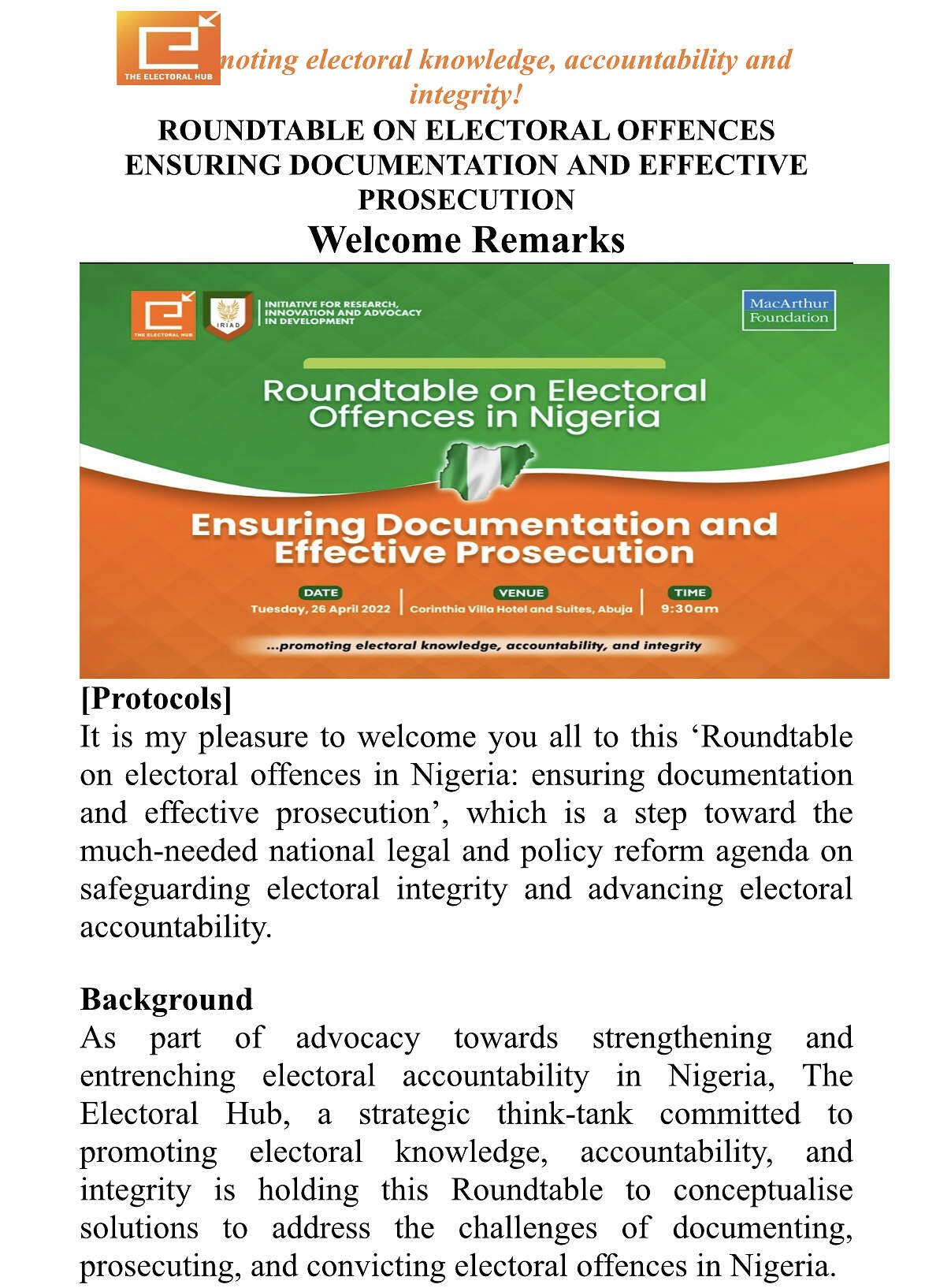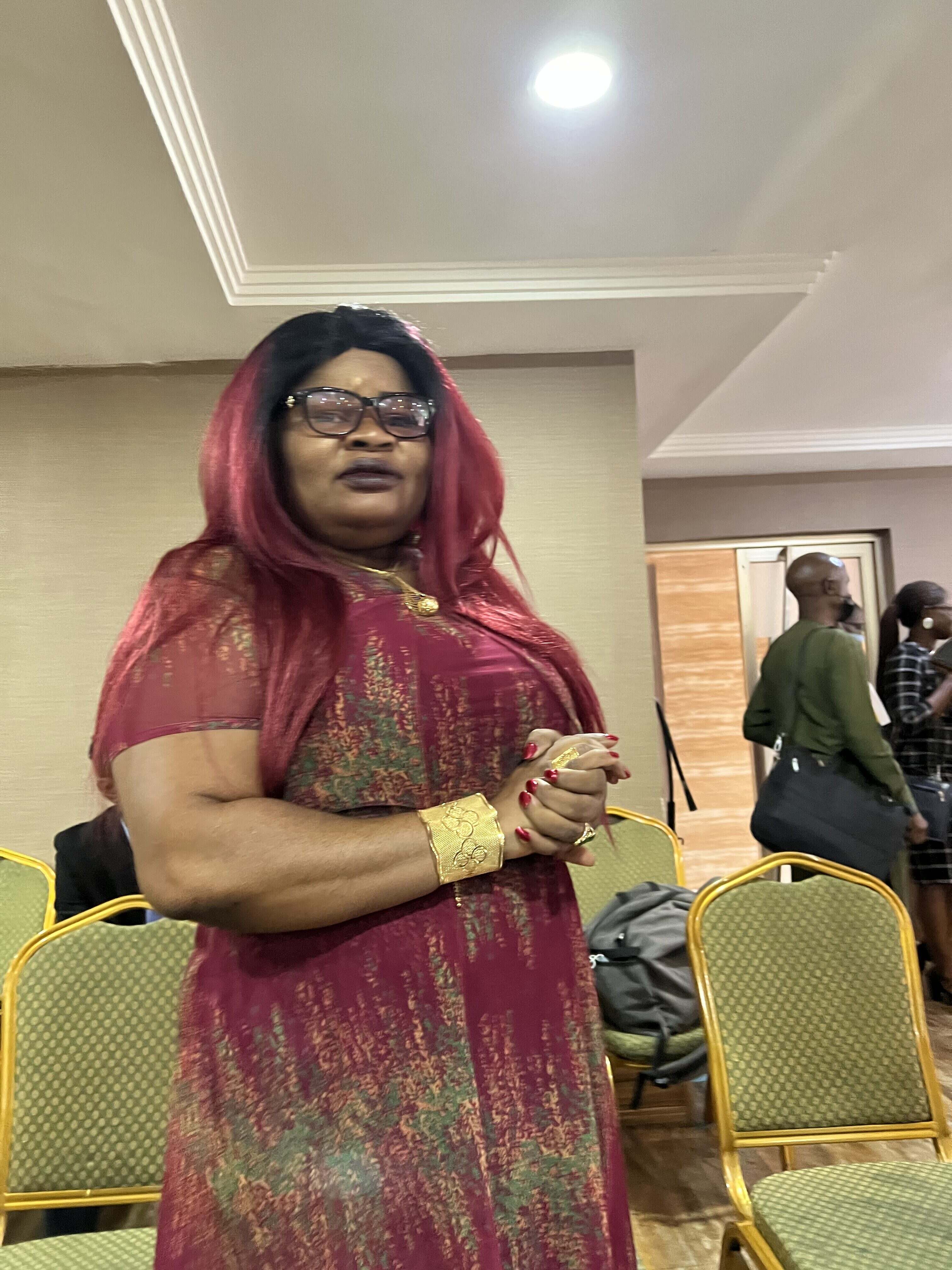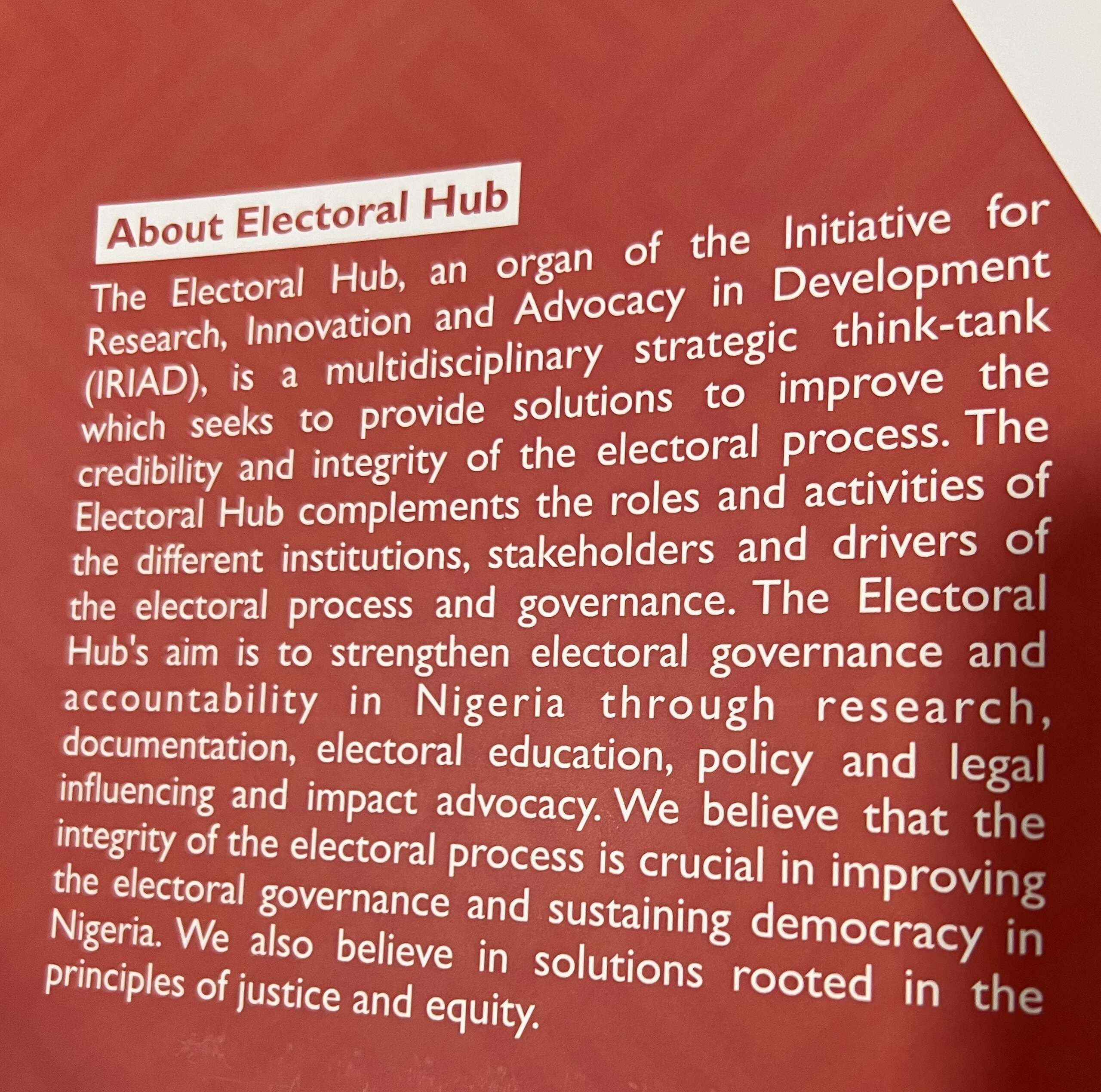The Electoral Hub, with the sponsorship of MacArthur Foundation, is organizing a roundtable to discuss and proffer solutions to and creating awareness of electoral offences in Nigeria.
The meeting is taking place at Corinthia Villa Hotel and Suites, Garki, Abuja.
Expected at the roundtable are;
Professor Attahiru Jega OFR, Former Chairman, Independent National Electoral Commission (INEC) and Prof. of Democratization, Ado Bayaro University, Kano.
Professor Mahmood Yakubu.
Hon. Chairman, Independent National Electoral Commission (INEC)
Alhaji Ibrahim Bako
Chairman, Forum of State Independent Electoral Commissions of Nigeria (FOS)
Alhaji Yabagi Y. Sani.
Chairman, Inter-Party Advisory Council (IPAC)
Dr Kole Shettima Africa Director, MacArthur Foundation
Professor Okechukwu Ibeanu.
Former National Commissioner, INEC and Professor of Political Science, University of Nigeria Nsukka.
Below, is the full text of the welcome remarks by Princess Hammam-Obels, Director, The Electoral Hub;

Background.
As part of advocacy towards strengthening and entrenching electoral accountability in Nigeria, The Electoral Hub, a strategic think-tank committed to promoting electoral knowledge, accountability, and integrity is holding this Roundtable to conceptualise solutions to address the challenges of documenting, prosecuting, and convicting electoral offences in Nigeria.
As we know, elections are central to establishing legitimate democratic governments. And the essence of democratic elections is that they are conducted with integrity embodied by respect and protection of the sanctity of the processes and procedures.
Furthermore, the legitimacy of a democratic government depends on the extent to which elections are trusted and perceived to be free and fair. However, elections are highly competitive and combative, and the stakes are usually very high creating the great temptation to have victory at all costs including engaging in various types of malpractices and fraud using illegal and corrupt means during the different phases of the electoral process, all of which constitute electoral offences.
It is well known that electoral malpractices and the prosecution of electoral offences are recurrent issues in Nigeria. Electoral offences such as vote-buying, thuggery and rigging have remained a burden in the Nigerian electoral journey. Evidently, in all elections, from the Local Government Council elections to Presidential elections, issues of violence before, during and after elections have characterised the political space. For instance, all electoral reform. panels and committees from 1985 Babalakin’s Commission of Inquiry into FEDECO to 2008 Uwais’ and 2017 Nnamani’s Panels have all identified electoral malpractices and offences as a major challenge to the integrity and credibility of the electoral process. They have all also recommended the establishment of a separate body such as the National Electoral Offences Commission to address the critical challenge.
In terms of documenting, and prosecuting electoral offences, the situation has been poor.
The Independent National Electoral Commission (INEC) has been tasked with enormous responsibilities, including conducting elections, registering political parties, conducting voter registration, and conducting civic and voter education.
With these numerous responsibilities, the Commission has been unable to make significant efforts in prosecuting electoral offences. A major challenge here is lack of resources – both required human capacity and finance to effectively prosecute electoral offences. This is compounded because INEC lacks investigative powers and has to rely on a third party, the police to investigate offences.
This is further worsened by peculiar features of Nigeria, where electoral politics is a zero-sum game and a ‘do or die’ affair: there is abuse of state resources, practice of godfatherism within many political parties, and high level of electoral impunity.
Electoral fraud and malpractices are rooted in the zero-sum/”do or die” politics of Nigerian politicians and political parties. Politicians commit electoral offences recklessly and with impunity because they believe and know they can do these without repercussions. There is also endemic corruption. Corruption has also increased the recurrence of electoral offences in the electoral process, as practices such as patronage, vote buying, and selling have become the norm during elections. The result is that without access to huge amounts of money, it is incredibly difficult – if not impossible – to contest elections in Nigeria. All these make it difficult to tackle electoral offences in Nigeria effectively.
These many issues around electoral offences in Nigeria greatly undermine transparency, participation, inclusion, and trust in the electoral process. The way electoral offences are addressed is a key indicator of the integrity and credibility of elections.
To save our electoral process, and democracy, electoral impunity needs to be tackled, otherwise, it may fester and truncate our nascent democratic process.
In recognition of this, The Electoral Hub has organised this Roundtable with, the support of the MacArthur Foundation.
The objectives of the Roundtable are to:
- Create a shared understanding of electoral offences, and how best to document and prosecute.
- Analyse the nexus between electoral offences and electoral accountability.
- Explore pragmatic strategies for effective monitoring and documentation by electoral stakeholders particularly the CSOS .
- Discuss challenges of prosecution and conviction, and make recommendations to address these challenges.
- Document the key discussion points to help lawmakers, policymakers and other key stakeholders understand the situation, gaps, challenges, and ways to tackle these challenges.
As you will see in the agenda, this Roundtable will feature a keynote address on prosecuting electoral offences as a mechanism for electoral accountability, provisions relating to electoral offences in the Electoral Act 2022, interrogation of the nature of electoral offences and discussing challenges of prosecution and conviction, and make recommendations to address these challenges, and perspectives from the electoral management body and civil society on monitoring and documenting electoral offences, particularly around effective documentation and prosecution as deterrence and accountability tools.
By facilitating discussions among the different stakeholders present today, including legislators, policymakers, politicians, civil society members, academics, and other electoral practitioners, we hope to conceptualise solutions to improve documentation and prosecution of electoral offences in Nigeria. These discussions will be used to produce communique, policy, and advocacy materials that will be disseminated after the meeting.
We urge the relevant stakeholders to support The Electoral Hub in this advocacy, as we push for reforms to address electoral offences in Nigeria.
Conclusion
Once again, I thank you all for honouring our invitation and I look forward to our remarkable participation in the discussion points today.
 Princess Hamman-Obels
Princess Hamman-Obels
Director, The Electoral Hub

